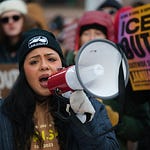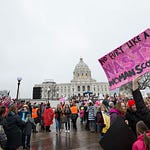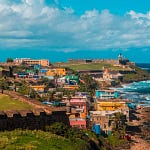Brief Summary
Commissioner Meg Forney centers her re-election message on equity and accessibility, restoring the city’s tree canopy, and diversifying park funding beyond property taxes. She highlights expanding public access to water through North Side riverfront projects, activating parks like the new Graco “River Hub,” and major investments in North Commons Park. Forney contrasts Minneapolis’s well-programmed parks with other systems’ passive spaces, calls for fairer state funding, and praises local partnerships that keep parks safe and encampment-free. She closes by urging full voter participation and endorsing educator Averi M. Turner as a needed new voice on the board.
The At-Large Race
This race is somewhat unique as there are eight candidates for three spots. It’s essential to rank the top three candidates. Here is a list with a brief description of each. Marty Carlson at the Hill & Lake Press has done a more extensive write-up on all the park board races.
Matthew Dowgwillo: A tech strategist and parent advocate focused on data-driven park policies, community engagement, and better online access.
Meg Forney: A longtime Park Board commissioner and former president emphasizing accessibility, environmental stewardship, and diversified funding to ease taxes.
Amber Frederick: A YMCA youth specialist and labor advocate prioritizing inclusion, investment in green spaces, and community partnerships.
Mary McKelvey: A teacher and coach championing kids, equity, and environmental justice through collaborative, “smart” park partnerships.
Tom Olsen: An incumbent commissioner promoting pedestrian-friendly parkways, equity, and reforming park liquor-use rules for responsible enjoyment.
Adam Schneider: A sustainability organizer focused on climate justice, youth programs, and supporting workers and neighborhood vitality.
Averi M. Turner: An educator and equity advocate aiming to expand cultural representation, youth career pathways, and community-led park design.
Michael Wilson: A parks professional and environmental organizer emphasizing youth, labor rights, and equitable access to safe, sustainable parks.
Interview Summary
In her interview on the Better Minneapolis podcast, longtime Park Board Commissioner Meg Forney spoke about her passion for the city’s parks, her 12 years of service, and the priorities driving her re-election campaign. Forney explained that stepping down as board president allowed her to focus more deeply on three key goals she calls her “three-legged stool”: advancing equity and accessibility, expanding the city’s tree canopy, and diversifying park funding sources so the system relies less heavily on residential taxpayers.
Forney emphasized that true equity in the park system means ensuring public access to water and green space for all residents—particularly in neighborhoods that have been historically excluded. She contrasted Minneapolis’s open, publicly accessible lakes with the limited access around private lakes like Minnetonka, using maps and graphics to show how public access helps distribute both property values and quality of life more equitably. Forney described ongoing efforts to extend this accessibility to the city’s riverfront, especially in North and Northeast Minneapolis, where industrial development long blocked residents from the Mississippi River. Projects like “Above the Falls” aim to reclaim riverfront land for community use, creating connected walking and biking trails.
The conversation also explored Minneapolis’s national park rankings, where the city consistently scores among the top three systems in the U.S. but lags behind Washington, D.C. on equity metrics. Forney argued that Minneapolis deserves higher marks because its parks are “activated” with programming, maintenance, and youth engagement, unlike D.C.’s largely passive park spaces. She highlighted new facilities such as the Graco “River Hub,” which includes a Sparked Studio for youth digital learning, and discussed major investments in North Commons Park—one of the largest single-park projects in city history—serving a community with high youth populations and long-standing disparities.
Turning to funding and sustainability, Forney detailed efforts to establish new revenue sources, including a stormwater utility fee, dedicated funding for parkways, and a long-term endowment managed by the Minneapolis Parks Foundation. She noted that over 80% of the park budget currently comes from local taxpayers, which she considers unsustainable. Forney also pressed for greater state and federal support, arguing that Minneapolis is underfunded relative to its economic contribution to Minnesota. She described creative funding ideas, such as seeking compensation for park-owned land under the airport, and credited legislators like Bobby Joe Champion and Scott Dibble for beginning to address systemic funding shortfalls.
Finally, Forney reflected on her deep connection to the park system, tracing her advocacy back to 1976 when Dutch elm disease destroyed trees near her first home. She praised the city’s collaborative park police and outreach staff for maintaining safety and compassion in parks, noting the absence of encampments since 2020. As the interview closed, she urged voters to “turn over their ballots” to vote in the At-large Park Board race. She voiced strong support for fellow candidate Averi M. Turner, a young educator bringing an underrepresented voice to the board. Forney ended by reaffirming her belief that Minneapolis is “a city inside a park,” and that its parks remain central to the city’s identity, livability, and collective future.










